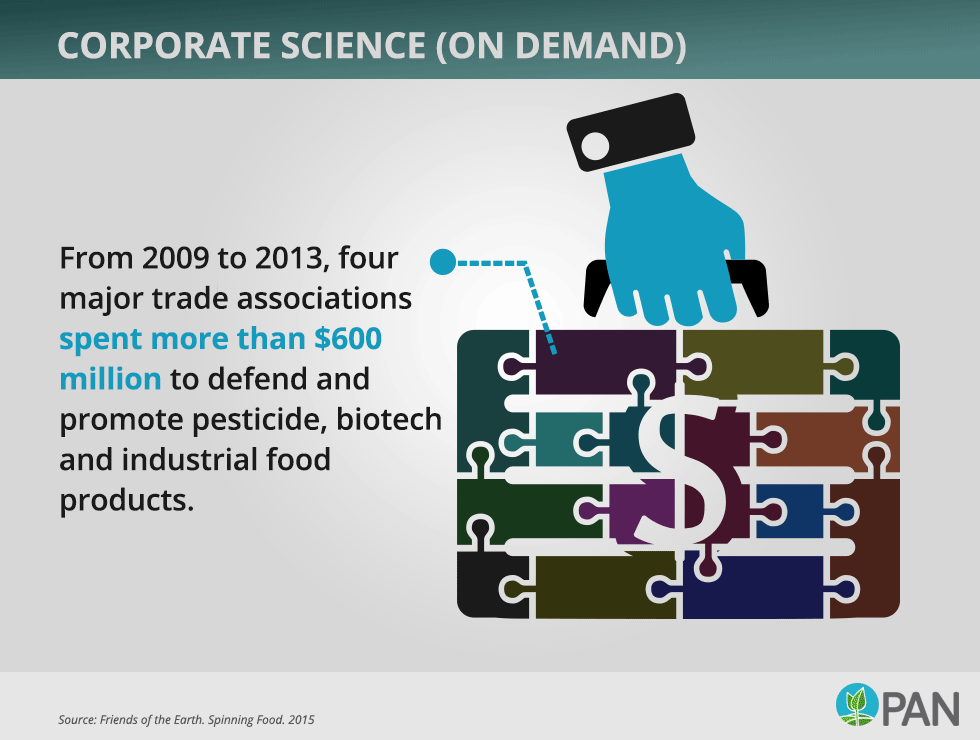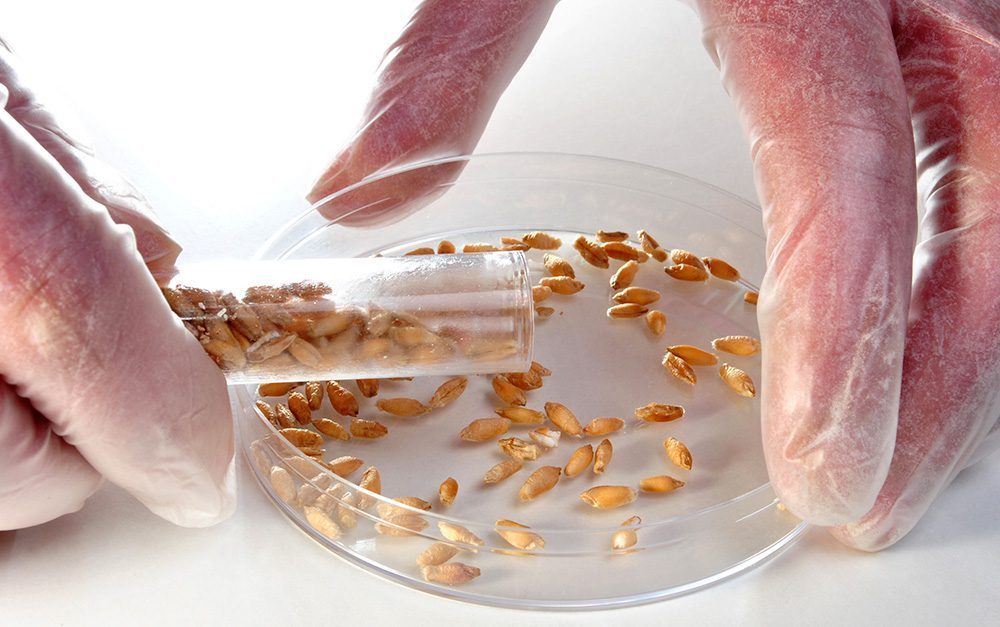Since the mass introduction of pesticides into food and agriculture following WWII, control over the knowledge needed to grow food has been shifting from farmers to the laboratories financed by multinational corporations. As a result, scientific research that serves corporate interests, rather than the public good, has become the norm.
The importance of science for the public good is difficult to overstate — especially when it comes to feeding our world.

Pushing the pesticide agenda
Instead of asking, “How can we efficiently grow the most nutritious tomato in a sustainable way?” corporations ask, “How can we genetically modify a crop that tolerates large doses of our flagship pesticide product?”
And then, the big biotech and pesticide corporations — Monsanto, DowDuPont, Bayer, BASF and Syngenta — conduct focused, well-financed research, lobby decisionmakers and launch PR efforts to ensure that these products come to market — regardless of their efficacy or safety.
Subverting science
In reviewing the health and environmental impacts of pesticide products, EPA relies almost entirely on industry-funded studies.
Chemical companies commonly sit on panels and committees that “advise” regulators as well. A representative from DowDuPont, for instance, served on the Endocrine Disruptor Screening and Testing Advisory Committee for EPA. And, much too often, there is a “revolving door” of former agrichemical industry executives, lawyers and scientists serving in government agencies tasked with industry oversight.
Even though corporate studies — and corporate representatives — are often driving regulatory decisions, this research is rarely available for public or peer review. Instead, it is kept out of sight under the auspices of “Confidential Business Information” or patent protection.
When scientists do unearth harmful impacts of pesticide products, biotech and pesticide corporations will go to great lengths to suppress their findings. Just ask Dr. Tyrone Hayes of UC Berkeley, for instance. When his research on atrazine highlighted the endocrine-disrupting properties of Syngenta’s flagship herbicide, the corporation launched a campaign to discredit him, including commissioning a psychological report, planting company reps at speaking engagements, and even targeting his wife for investigation.
Lobby pressure
Not surprisingly, the agricultural industry maintains an army of lobbyists in D.C., state capitals and countries worldwide to protect their interests.
As a special interest lobbying bloc, agribusiness spends over $90 million a year lobbying Congress. They wield influence in an array of areas, from anti-trust, patent and tort law to labeling, food safety, insurance and financial services regulation.
The American Farm Bureau Federation, one of the most powerful interest groups in Washington, D.C., claims to be the “voice of farmers.” In fact, they lobby for corporate agribusiness and speak on behalf of a membership base comprised not of farmers, but of insurance industry affiliates.
In 2014, the agricultural input industry alone spent $30 million on lobbying. Monsanto and Biotechnology Industry Organization spent over $12 million combined.
Countering the spin machine
Public concern about and opposition to pesticides and GE crops has grown tremendously in recent years — and the agrichemical corporations have taken note. Monsanto & Co. have doubled down on their PR campaigns in an attempt to control the public narrative around food and farming. According to analysis from the Center for Public Integrity, agricultural industry trade groups are now “putting far more money into advertising and public relations than lobbying.”
As reported by our partners at Friends of the Earth in Spinning Food, 14 of the most significant food and agriculture front groups spent roughly $126 million from 2009 to 2013 on a “range of tactics designed to shape what the public and policymakers think about food, health and sustainability.”
At PAN, we’re working with farmers, scientists and communities on the frontlines to shine a light on the corporate spin machine — and expose the undue influence of the pesticide industry on regulatory decisions. A handful of corporations have held food and farming captive for far too long.
Join us in working for a food system that prioritizes healthy communities, local economies and sustainable farming practices over corporate profiteering.







